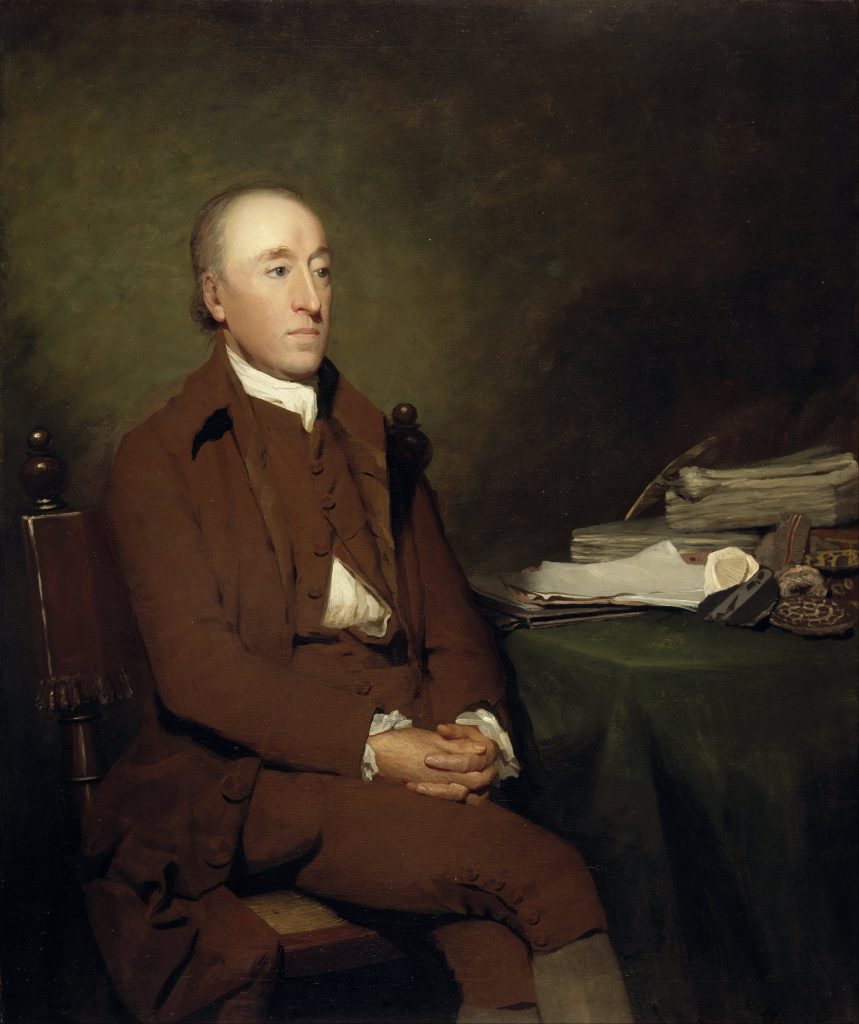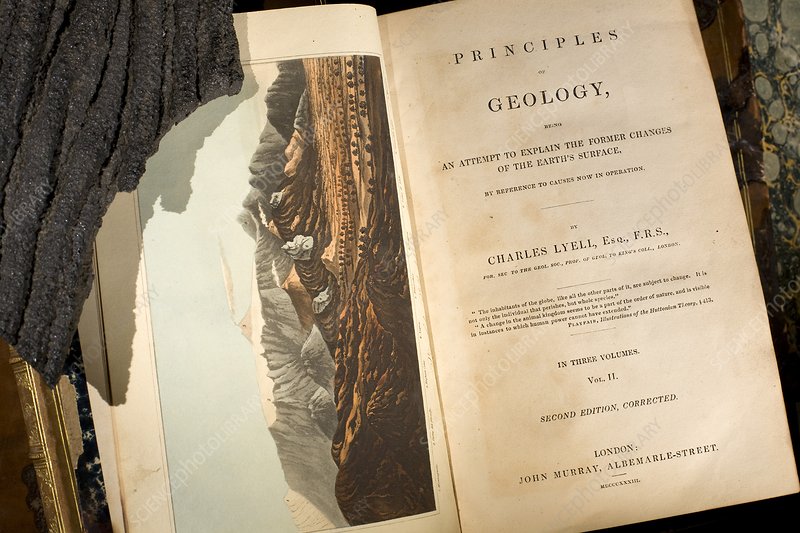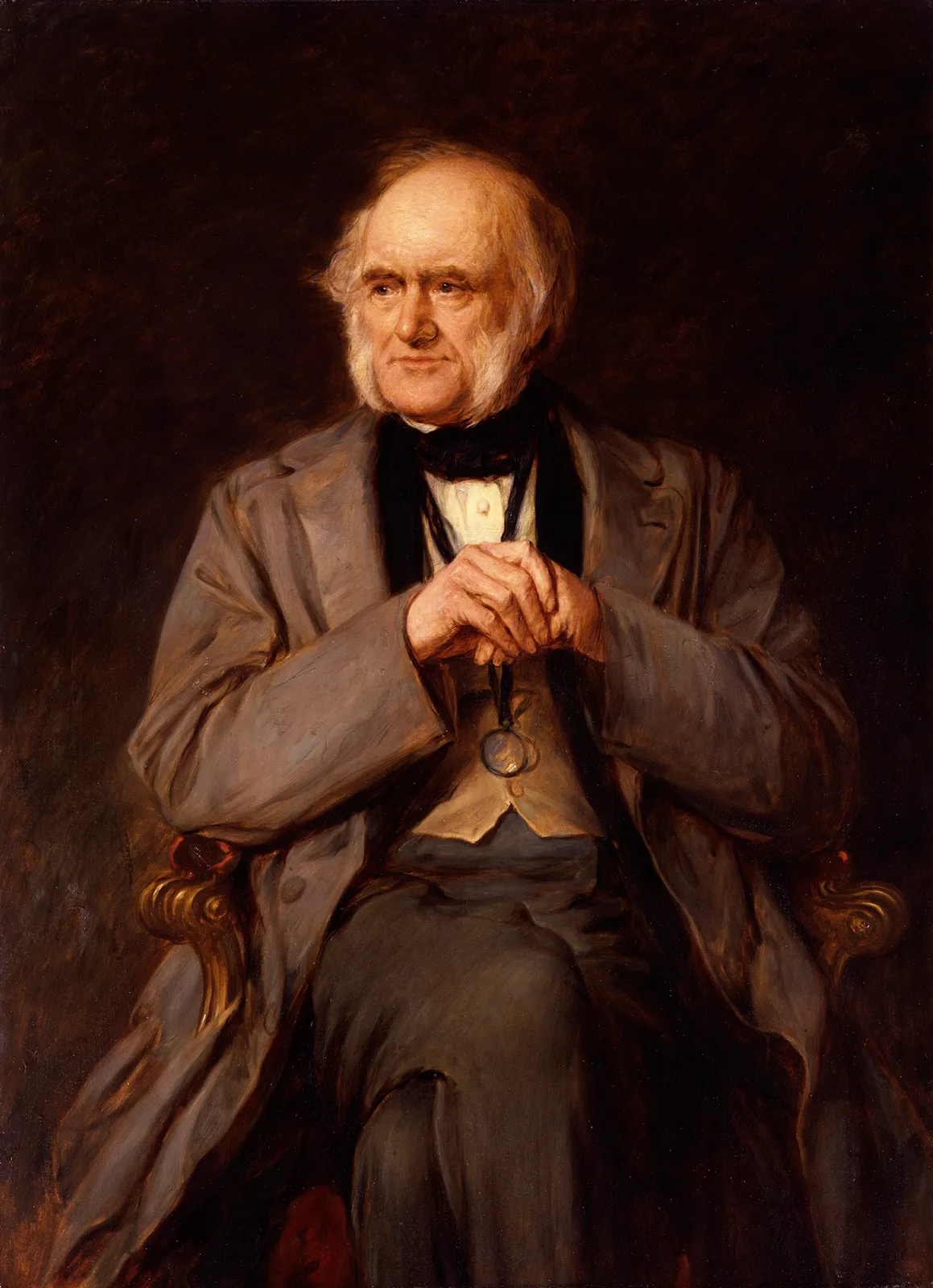by Gideon Lazar
Last week I discussed one of the key influences on Charles Darwin, Thomas Malthus. Malthus’s eugenic views shaped Darwin’s theory of natural selection. The sinful ideas present in Malthus were read back into the creation itself, and the results have been nearly 200 years of social disaster. However, the other primary influence on Darwin is important to look at as well, Charles Lyell and his theories of geology.
Geology is a fairly recent science. While people for millennia had suggested that Noah’s flood helped to shape the landscape, how rocks actually form and change was barely discussed. The fundamental principles of geology were actually laid down by a 17th century Catholic convert and bishop, Blessed Nicolas Steno. He intended these principles to be used to help explain the flood described in Genesis. Initially, this was the primary focus of geology and much important work was done. However, this all began to change with James Hutton.

Blessed Nicolas Steno
Hutton was a late 18th century farmer and scientist. He was highly influenced by the erroneous principles of the Scottish enlightenment, such as those of David Hume. Hume argued that we should only believe that which we can directly observe and must disregard miracles. Hutton took this to mean in the world of geology that present processes can explain all geological features on Earth, which is known as uniformitarianism. Observing how sand washed in and out of his fields, he theorized that all rock layers are formed by these slow processes of erosion and sedimentation. This was further confirmed in his mind when he found some geologic features which he personally could not explain except by allowing millions of years. Suddenly, the world was no long mere thousands of years old as scripture and the Church had always taught. It was many countless ages old.


James Hutton and the unconformity at Siccar Point which he used to defend his theory of an ancient Earth
Hutton’s theories gain widespread circulation. However, shortly after his death, his theories were popularized by supporters. One of the key popularizers was Charles Lyell, who wrote a multi-volume work on it called Principles of Geology. Lyell himself said that the purpose of this work was to “free the science from Moses.” Lyell wanted to remove all influence of Christianity from natural science, destroying finally the proper hierarchy established by the scholastics.
While Darwin was on the Beagle, he read Lyell’s Principles of Geology. It is only once he came to believe the Earth was ancient that he could begin to consider evolution. His observations in South America were deeply shaped by this belief.

Was Darwin’s belief in an ancient Earth warranted though? It is only the case if one accepts uniformitarianism. However, St. Peter had already prophesied and refuted uniformitarianism millenia before:
First of all you must understand this, that scoffers will come in the last days with scoffing, following their own passions and saying, “Where is the promise of his coming? For ever since the fathers fell asleep, all things have continued as they were from the beginning of creation.” They deliberately ignore this fact, that by the word of God heavens existed long ago, and an earth formed out of water and by means of water, through which the world that then existed was deluged with water and perished. But by the same word the heavens and earth that now exist have been stored up for fire, being kept until the day of judgment and destruction of ungodly men. (2 Peter 3:3-7).

Notice the objection of the scoffer: “all things have continued as they were from the beginning.” St. Peter lists two key things the unbeliever denies to support uniformitarianism: the creation and the flood. These are two times where the principles of uniformitarianism cannot be applied because things happened differently than they ordinarily did.
St. Peter also explains why the scoffers reject the creation and the flood. The first creation ex nihilo proves that there is an almighty God to whom we are subject, and the flood proves that God has judged the world in the past. These two facts show that God will once again judge the world. This means we are accountable for our sins and must repent. The scoffer refuses to do this and creates every philosophical way possible to escape this conclusion. But it is true regardless of what they choose to believe.


